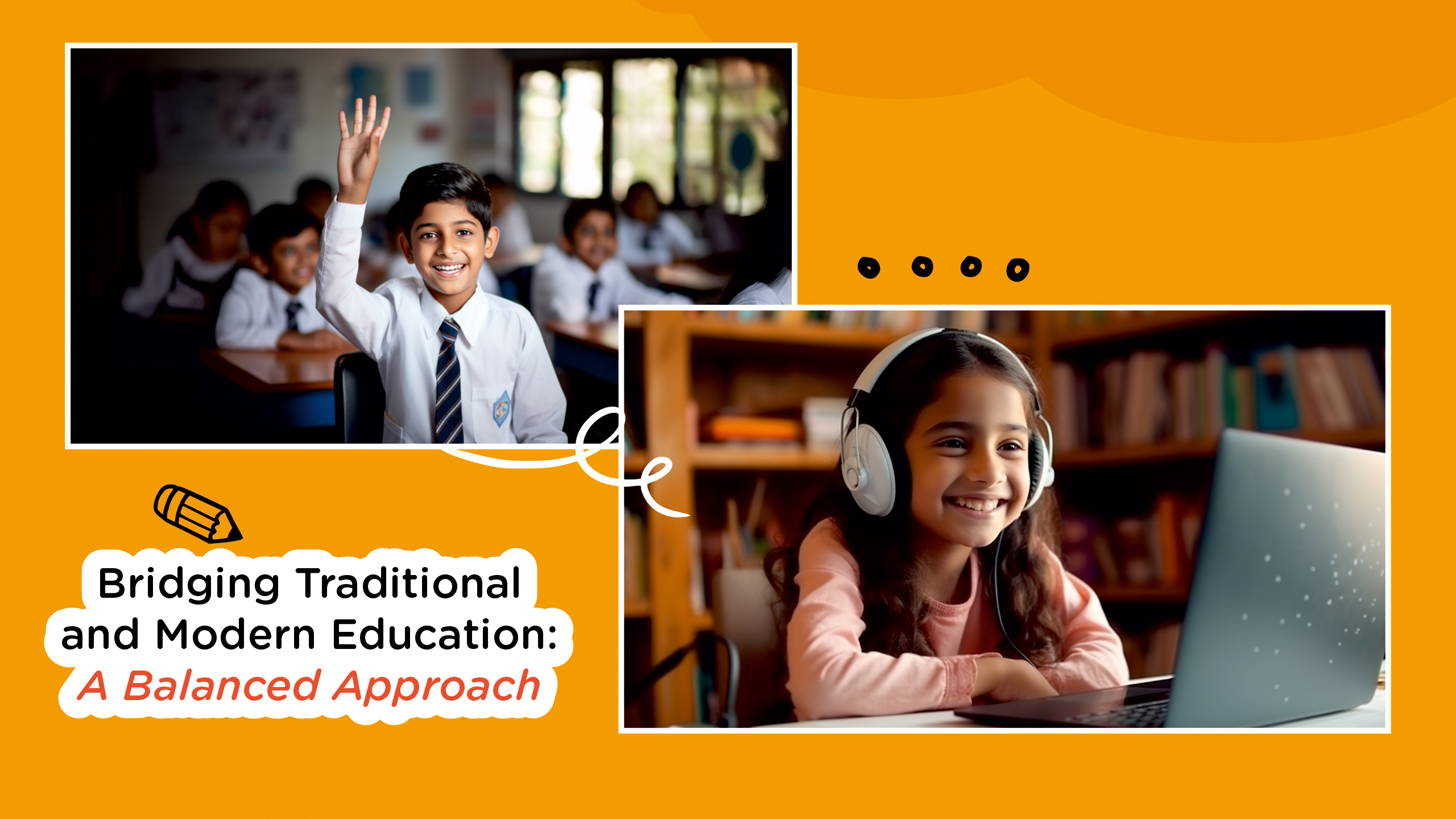In the steadily advancing field of education, India stands at a pivotal juncture, where the depths of traditional learning methods seamlessly integrate with the dynamic innovations of modern pedagogy. For Indian parents who have experienced the conventional schooling system, the prospect of new educational approaches may seem daunting. However, embracing a balanced blend of traditional and modern education can offer an overarching learning experience that caters to the diverse needs of today’s students.
Understanding Traditional and Modern Education
India’s traditional education system has long been characterised by rote learning, a fixed curriculum, and a focus on examinations. This approach emphasises memorisation and repetition, often at the expense of critical thinking and creativity. While it has produced a disciplined and knowledgeable populace, it may not fully equip students with the skills required in the contemporary world.
In contrast, modern education advocates for student-centred learning, interactive teaching methods, and the integration of technology. It encourages critical thinking, problem-solving, and collaborative learning, aiming to develop well-rounded individuals prepared for the challenges of the 21st century.
Blended learning, which combines traditional and modern educational methods, offers several advantages:
- Enhanced Engagement: Incorporating multimedia resources and interactive activities makes blended learning maintain student engagement and address diverse learning preferences.
- Accessibility: This approach extends learning beyond the classroom, making education more inclusive. Narayana’s integrated curriculum combines the best of multiple boards, while the nLearn app offers extra videos and resources to deepen students’ understanding.
- Multifaceted Development: Blended learning fosters critical thinking, creativity and collaboration, skills essential for personal and professional growth.
- MindScape Initiative: Blended learning not only enhances academic achievement but also prioritises mental well-being, facilitating a balanced and supportive environment for emotional and cognitive development. Narayana’s Disha Program helps students manage stress by focusing on their mental well-being while building their tenacity and perseverance.
- Continuous Assessment: Regular assessment of the blended learning approach ensures that it meets educational goals and addresses any challenges promptly.
Evolving Education Practices in India
India’s education system is undergoing significant reforms, with the National Education Policy (NEP) 2020 advocating for a more holistic and flexible approach to learning. The NEP emphasises the integration of technology, multilingual education and the preservation of indigenous knowledge, aligning with the principles of blended learning.
The fusion of traditional and modern educational methods offers a promising path forward for India’s education system. By embracing a balanced approach, we can provide students with a comprehensive education that honours our rich cultural heritage while preparing them for the future. As we navigate this journey of continually refining and enhancing our educational methods, Narayana Schools recognises that your dreams are our dreams, therefore, we are committed to nurturing the potential of every child, enabling them to realise their aspirations and fulfil their dreams.
Follow Us for More Educational Insights
Stay updated with the latest tips on education and student development. Follow us on Instagram for inspiring stories, engaging activities, and much more: Thenarayanagroup
